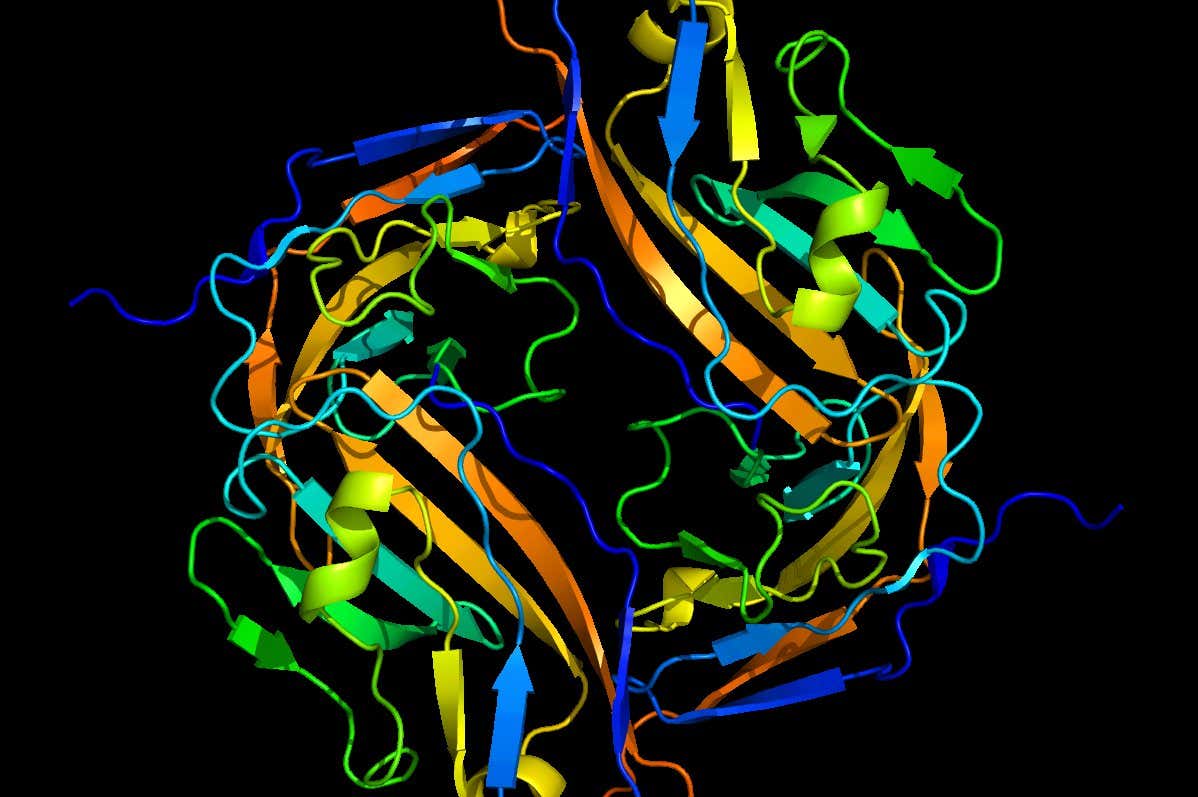Genetically altered stem cells that are “invisible” to the immune system treated diabetes in mice without being wiped out by a destructive immune response
By Clare Wilson
8 May 2023
The CD47 molecule, which tells the immune system not to attack
Pleiotrope
Stem cells have been developed that don’t provoke a destructive immune response, and they have been used to make pancreas cells to treat mice with a form of type 1 diabetes.
The result is a further step down the road to treating a range of medical conditions with tissues or organs that can be used “off the shelf”, instead of having to be made from scratch for each person.
“The vision is we have cells for anyone, anytime, anywhere,” says Sonja Schrepfer at Sana Biotechnology in San Francisco, California, the firm behind the approach.
Advertisement
It has been a long-standing medical goal to harness the regenerative powers of stem cells – cells that are similar to those in embryos that can be coaxed into multiplying and developing into different tissues. The hope is that they could be transplanted into people to treat a host of conditions, including heart attacks and strokes.
But cells taken from one person and put into another are usually killed by the immune system.
Most of the stem cell treatments in development would therefore either need people to take immune-suppressing drugs or require stem cells to be created from cells taken from the person receiving them. Such made-to-measure therapies would be more costly and could take several weeks to develop, which would be a problem if someone needed urgent treatment.
